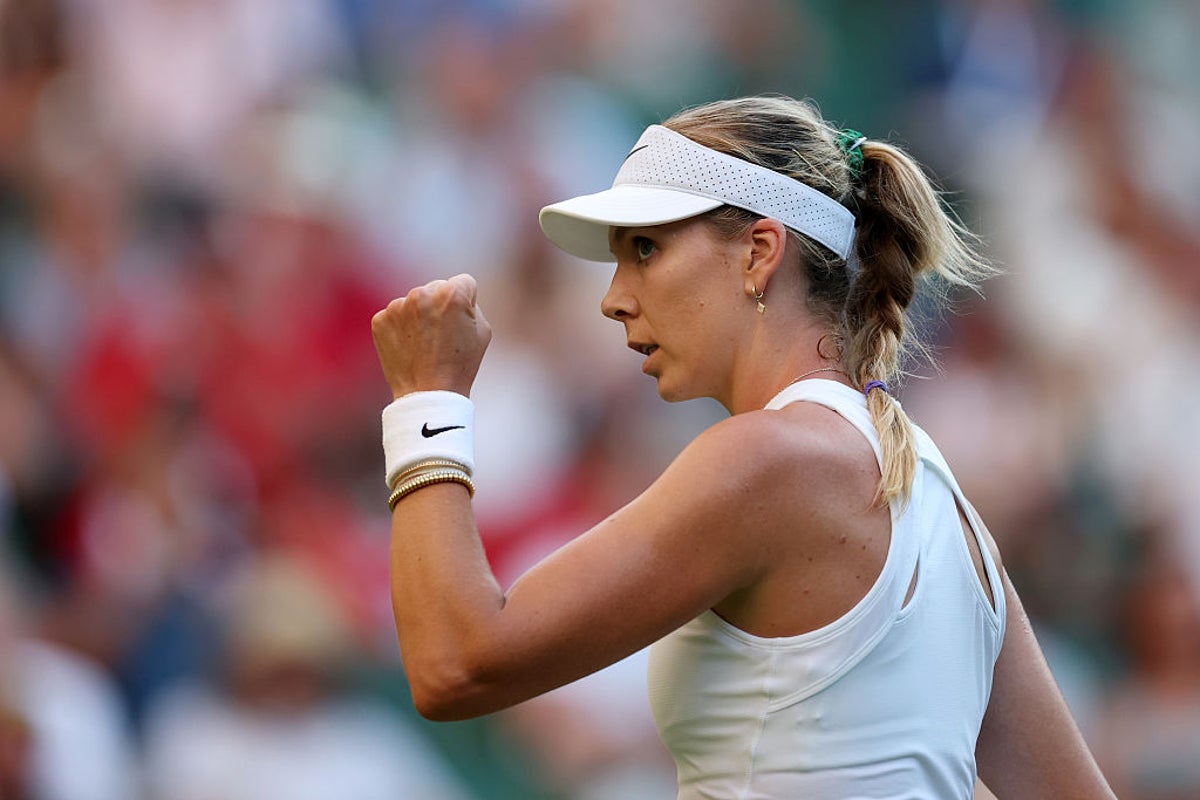The rigours of the tennis tour wait for no one. Last month Katie Boulter was trying to string together a run on the grass. A second-round loss at Wimbledon brought an end to that, but there was no time to dwell on the defeat. That is not the 29-year-old’s style.
Instead, it was pretty much straight back to work at the National Tennis Centre before landing in the heat and humidity of Washington – “a shock to the system” – with her focus firmly on the next half of the season: seven weeks in the US, a week at home, before jetting off again for another two-and-a-half-month stint in Asia.
The end of her 2024 season was “a mix” results-wise, she says, but it was significant that she maintained fitness throughout and finished on a high note, reaching the semi-finals in Tokyo and the final of the WTA 250 tournament in Hong Kong.
“The season is very much non-stop,” Boulter, a BRITA UK ambassador, tells The Independent. “No one ever gets a break. At the end of the season a lot of people start dropping like flies. I was able to push on and then finish my year really strong, which helped massively. Mentally, it was a milestone for me, because I managed to push through a lot of tough, tough moments out there.”
Boulter’s career has involved a lot of pushing through tough moments, from a chronic fatigue syndrome diagnosis as a teenager to a series of injury issues as she became a more established player, including a spinal stress fracture in 2019.
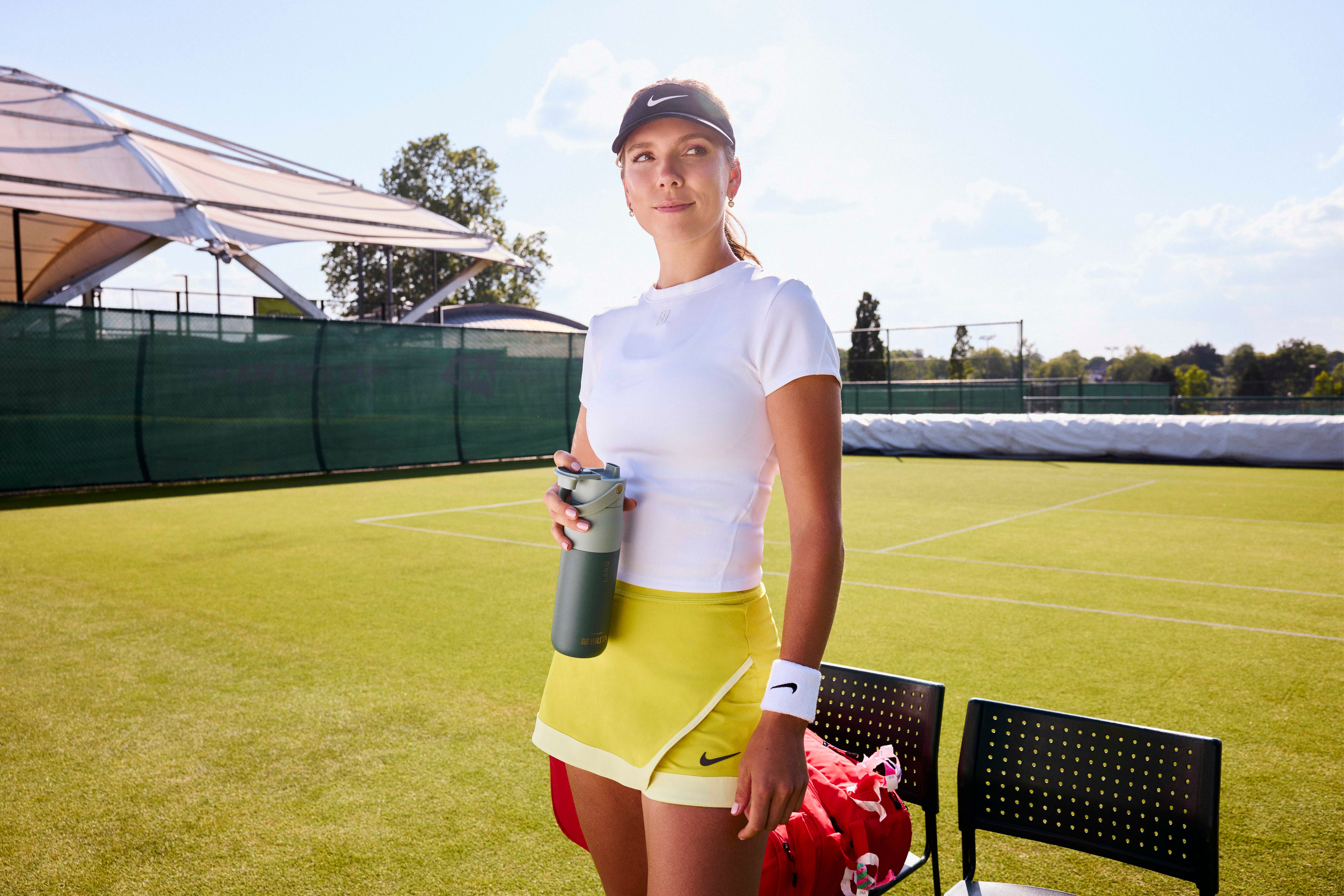
That seemed behind her as she became a more consistent force on the tour. In 2023 and 2024, she hit a series of milestones: becoming British No 1, winning her first WTA title in Nottingham, and breaking into the world’s top 25 with her run to the Hong Kong Open final last autumn.
But that momentum came to a halt with a foot injury which sidelined her this February. It has been a stop-start run for her ever since, with highs including a maiden clay-court title – at the WTA 125 Trophée Clarins in Paris – and registering a fourth-ever top-10 win with a hard-fought, classically Boulter win over Paula Badosa at Wimbledon. The lows: she could not claim a three-peat of Nottingham titles and was knocked out in SW19 by the unheralded lucky loser Solana Sierra, a player ranked 58 places below her.
But she says that after that difficult start to the year, it was a positive step to feel able to compete. “[Winning in Paris] was a nice kind of nod to show me that I’m going in the right direction physically.” She notes that she reincorporated elements into her training, such as plyometrics, which she hadn’t been able to do since before her foot injury. “I felt like it was a result for me, because I was moving in the right direction. I’m actually more motivated than I have been the last few months to really push on. In a way, it’s been a good thing.”
Boulter bristles at the suggestion that the pressure of being a British player at Wimbledon made any difference to her performance. “I’m the only one out there and my team knows what’s actually happening on the court. I think [outsiders] can look at one match and one person’s ranking and be like, she should win that. And I think that’s a downfall. I’m going to be the first person to say [Sierra] played a great match, she didn’t lose the round after, so it’s not like she shouldn’t or didn’t belong there.
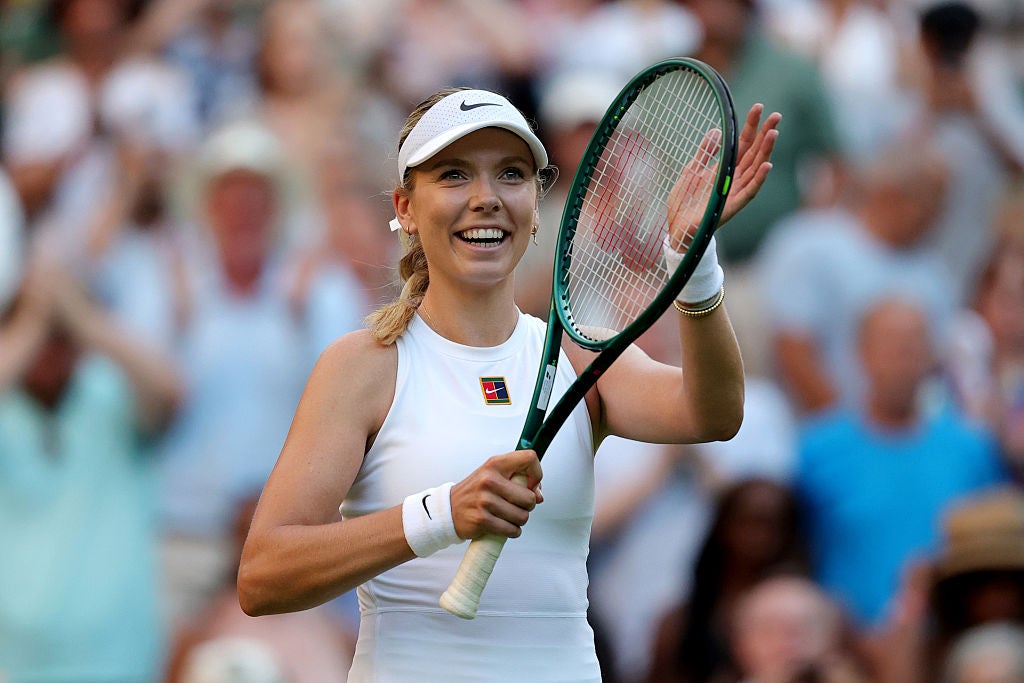
“I wouldn’t label it because of pressure. I don’t think that’s a fair thing to say. I’ve been around the block for a fair amount of time, I’ve played a lot of pressure matches. She was a better tennis player on the day. But I think pressure is a privilege, and you have to embrace it.”
The British No 2 is determined to look at the positives, but amid the turmoil of that frustrating loss, she wondered afterwards whether “her moment” would ever come. How does she combat those fears?
“I think it’s very easy to get wrapped up in losses,” she says. “You lose over 50 per cent of the time. The best in the world lose 50 per cent of the time. But I think what I meant by that [comment] was, I keep putting myself in positions where I feel like I can go far. I think my tennis in the previous rounds had been extremely good, and then I go out, and unfortunately, I can’t get the job done.
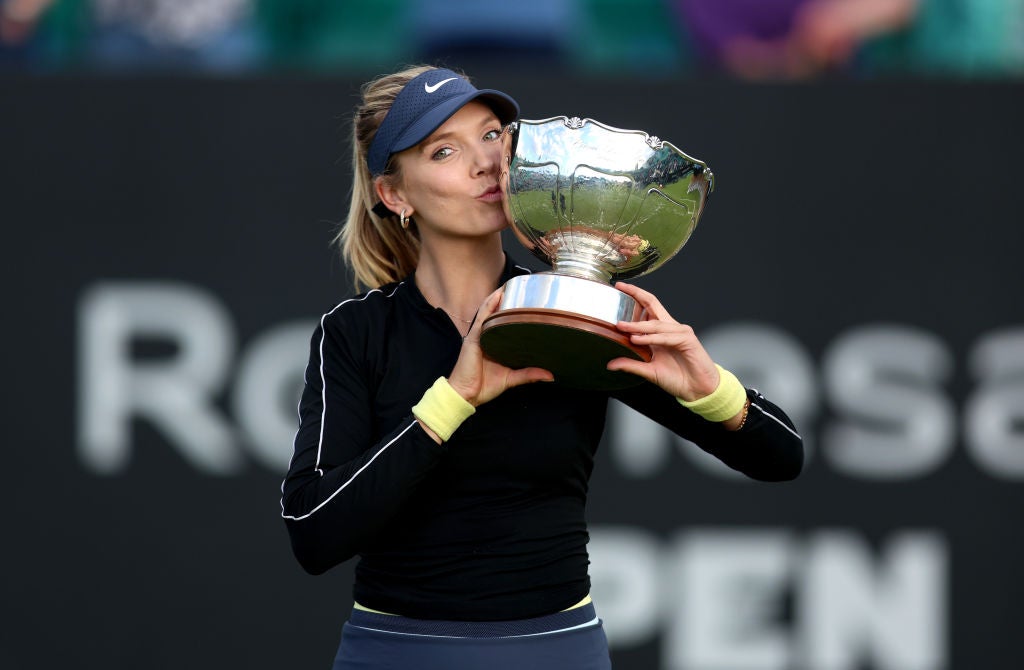
“I could have easily lost in the first round to a top 10 player, and we’d all be sat here going, ‘That makes sense, tough draw.’ But I have to take the positives where I actually beat a top 10 player on Centre Court. I think it’s just, playing more matches and getting myself more into those positions, and my time will come, and I have to believe that.”
One major event on the horizon is the Billie Jean King Cup: GB have qualified for the eight-team finals in September, with Boulter teaming up with close friend Jodie Burrage to send Britain through their qualifier – “possibly up there with one of the best wins in my career”, she says.
The national tournaments are important for Boulter, who has played a significant role as a leader of the British team. “I’ve stepped up every single time,” she says. “In the last tie that we played, I think I could have easily bowed out of that with my foot situation, and I personally stepped up and wanted to play, and wanted to bring the team to the finals and lead that way.”
She and her fiancé, fellow tennis player Alex de Minaur, have also teamed up in mixed doubles and were hoping to receive a wildcard entry to the US Open – after much pleading on social media to the organisers having not been included on the original entry list. Boulter’s accepting of an invite into a WTA event in Cleveland suggests their participation is now unlikely. “We kind of panicked, because we thought that was the deadline, and we missed it,” she grins. “Luckily, when we’ve played so far, we’ve been great together. There haven’t been any arguments after yet, but there’s still time!”
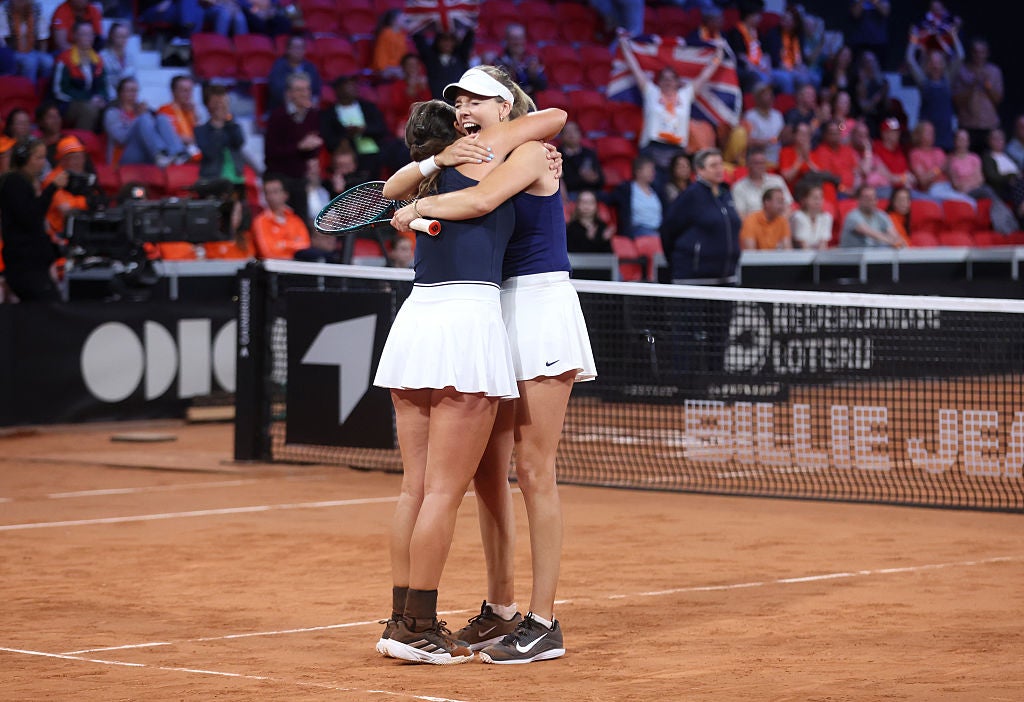
Some players’ private lives came under the microscope this grass-court season, and she notes wryly: “Everyone wants to make their own story and create every single narrative that they want to see. Ninety-nine per cent of it is not what the truth is. That’s where social media can be a really tough place at times, because what you see is not true. We all get carried away with the romance of it.”
Social media is a topic Boulter has, as is all too common for professional athletes, endured more than her fair share of. Earlier this year she revealed some of the abusive messages and death threats she has received in an interview with BBC Sport. The messages were disturbingly graphic, and only a microcosm of the abuse players – particularly women – receive daily. But the reaction to it was overwhelmingly positive, she says. “I think it almost went the other way – I was getting so many messages, and I’m still getting messages now, with so much positivity.
“But it wasn’t really the end goal for me. I wanted to try and make a difference and continue talking about this situation. And I actually got a text this morning that there’s a lot of chat about it in the government. I really hope that it can spark a wider conversation in general. I think it’s such an important thing to start changing for the next generation.”
Katie Boulter is a BRITA UK ambassador, working to mark the brand’s second-year partnership with the LTA as ‘official water partner’. The pair are championing the power of hydration via the ‘Alive As Never Before’ campaign encouraging everyone to make mindful choices to do better for their body, mind & planet.


